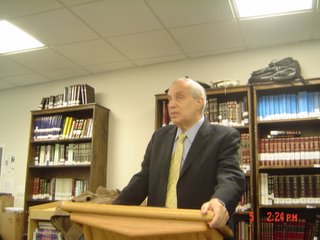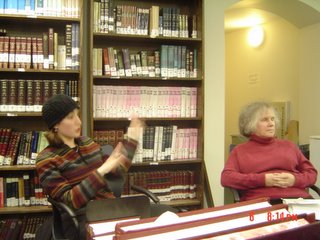
Yesterday, Rabbi Avi Weiss began his Monday post-Minha speeches with one on relating to one's fellow, especially as a rabbi. He said at the outset that the purpose of these speeches (lasting around 15-20 minutes) is for them to be "relevant to the rabbincate relative to
the mission of the yeshiva." I think that the meta-purpose of these talks to the yeshiva is that we students don't have much interfacing with Rabbi Weiss, so these lectures are designed for him to impart some of his wisdom to the students, specifically, as he said, regarding morsels of knowledge about the rabbinate.
He began speaking about the dialogue in Bereishit 29:4ff where Ya'akov is speaking with others where Ya'akov is shown to be speaking
to them, while they are merely speaking. He went from there to speaking about connecting with people when we're speaking with them.
He made the point that what we're doing is holy work - the keyword is relationships. He further said that it is important to recognize "that we're dealing with people, with a personality, with a character." It is about connecting.
Additionally, "Before you can be a good Rav, you need to work on being a good person - a mentsch. It's not that what a person says, per se, is what people hears. Rather, a person "hears" what the other person
does.
"It is a core value of Chovevei Torah to graduate poskim, talmidei chachamim. But in the end, it is also to graduate people who love people."
I look forward to his future mini-lectures.







